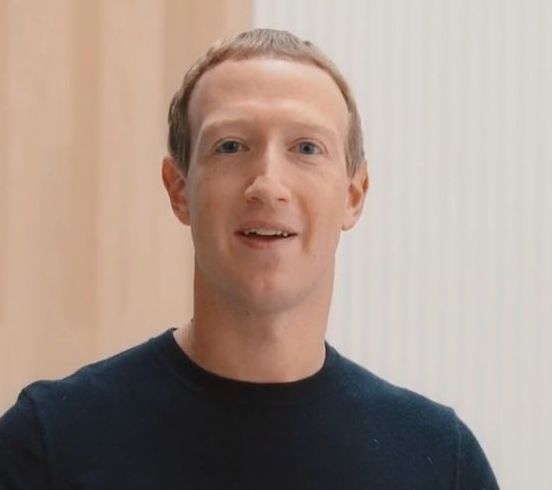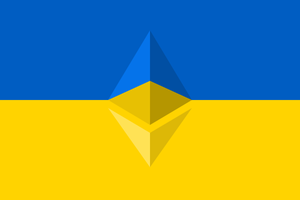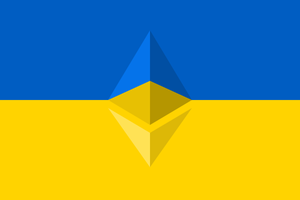This is a transcription of Season 2/Episode 2 of Tech News for MBAs. There has been some light editing to make it more readable, but it is almost verbatim.
Meta founder and CEO, Mark Zuckerberg, announced yesterday that he was changing the name of the company from Facebook to Meta. Until now, Facebook has really been two different things: Facebook is a product and app that you use on your phone or computer, and Facebook is also the name of the parent company that owns the Facebook app, but also owns and operates Instagram, WhatsApp, Messenger. Oculus, and a few others that you may or may not be familiar with.
Oculus was a company that was acquired by Facebook in 2014 for a little north of $2 billion, and at the time it was a very nascent virtual reality company that had raised a crowdfunding campaign on Kickstarter. I think a lot of people saw that as a pretty random buy for Facebook and that they overpaid dramatically. But it's interesting, now seven years later, to see the foresight of that acquisition at the time– that team, that technology– to really place a bet that is starting to come to fruition now.
This announcement was made at the annual Oculus conference about virtual and augmented reality. It is not by accident that this is where Mark Zuckerberg really declared his intentions for the next era of Facebook, a.k.a. Meta.
Notably, Oculus is also being rebranded to Meta. So there used to be a company called Facebook, and then a sort of a subsidiary of that company also called Facebook. Now there's going to be a company called Meta with a product called Facebook, and then another product line called Meta.
Meta is short for metaverse, it's also a Greek word that means “beyond” which Mark Zuckerberg mentioned. And of course, we use it in normal speech– when something is meta, it's sort of outside of itself. And I think there's something interesting about when you use the term meta, it's sort of implying a self awareness or a self reference.
So, what is the metaverse? The term originated in the science fiction novel Snow Crash by Neil Stevenson in the early 90s. The way that the metaverse was conceptualized in that book is not entirely dissimilar from the metaverse that we're talking about now, but I think it's really just sort of taking the spirit of it.
If you look on Wikipedia, it says:
Metaverse is a speculative future iteration of the Internet, made up of persistent, shared, 3D virtual spaces linked into a perceived virtual universe. The metaverse in a broader sense may not only refer to virtual worlds, but Internet as a whole, including the entire spectrum of augmented reality.
Read that first line again: A speculative future iteration of the internet.
And I think that really is the best way for us to think abou the metaverse. It's not about Facebook creating a metaverse, and then Google will create a metaverse, and Snapchat will create a metaverse– just the same way we don't say that each of them has an internet. There is the metaverse, and the metaverse is like the internet today– it is the ground that all these other services sit upon.
And it is what Mark Zuckerberg and the team at Meta are trying to do. They are trying to make this new version of the internet real. So that instead of being “speculative”, they actually want to bring this to bear.
As longtime listeners of Tech News for MBAs and any former students of mine know, and pretty much anyone that's ever talked to me might know, I've been talking for years about this concept of a fully immersive version of the internet that lives all around us all the time.
I'm writing a book about augmented reality– the metaverse is a relatively new name given to this sort of phenomenon– but it really is about integrating the internet into everything we do, instead of just interacting with it through this screen, this rectangle, that we carry around with us, or a rectangle that we put on our desk at work, or a rectangle that we put on the wall to watch TV.
But instead, this is the internet, and our digital lives, being fully integrated into the physical world.
When we think about virtual reality vs. augmented reality, the best way to think about it is as a spectrum. They're not two different things. On one end of the spectrum, imagine your field of vision is 0% artifact. 0% digital. It's just exactly what exists in the physical world. That would just be, you know, reality.
Then imagine the other end of the spectrum, where it's 100% virtual. 100% digital, where there's not a single pixel of reality shining through. That's virtual reality. And basically anything in between is augmented reality.
Of course, the advantage to AR is that you can be using it while you are going about your day– while you're talking to other people, while you're walking down the street.
Whereas in VR, you really lose touch with the physical space and the physical people that are with you as you are fully transported to somewhere else.
The keynote presentation that Mark Zuckerberg gave was unusual in that it really wasn't about any specific releases or product announcements. There were some very minor ones, but it was more of a public declaration of the intention of the company, over an unspecified period of time, basically just from here forward into the future. And it's rare for a public company to do this! It's not really a launch event. It's more like a manifesto.
And you can tell from the way that Zuckerberg talks about it that this is where his heart is. It’s probably where it's been now for a few years, but he finally gets to talk to the rest of the world about it. Obviously I've never run a company even remotely close to the size of Facebook/Meta, but I know that feeling. I can see it as an entrepreneur, and I could see it in him. He has this initial set of hits that put him on the map, but now he really wants to leverage the money that those businesses generate towards a bigger and broader and more exciting ambition. And in a lot of ways, he sort of fell into Facebook. I mean, he was practically a kid when he built the thing! And there was no foresight, and there was no planning.
Whereas here, he has the benefit of being an adult. Of having run this business. Of having the ability to be intentional about what he wants to build. And rather than stepping down as the CEO of Facebook and going and starting a new company called Meta, he is attempting to pivot this company, and sort of reverse engineering a justification and a rationale and a narrative that makes the whole thing seem like it's part of the same big project.
There are a lot of comparisons to Google, which in 2015 pulled a seemingly similar move when they renamed the parent company to Alphabet. Then Google became a subsidiary of Alphabet, and they have other projects, but Google remained the main thing. They have another category in their financial reports called “other bets”.
Whereas here, it kind of seems like Meta is the main bet, and the existing “Family of Apps” as they call them are almost like the legacy business that they're just sort of dragging along for the ride.
They announced that they are going to start reporting their financials as Family of Apps vs. Reality Labs. It's not that Reality Labs is a separate product exactly– it's more that if they succeed at really bringing the metaverse into existence, then those family of apps, Facebook and Instagram and WhatsApp and Messenger, will actually live in the metaverse. Today, those apps live on Apple in the App Store, and on Android, and on the web.
If the metaverse is the next iteration of the internet, then you will use Instagram in the metaverse. And so rather than thinking of the Family of Apps as being peer level to Reality Labs, I almost think of it like Reality Labs sits underneath, and eventually the Family of Apps sits on top. And if they pull the whole thing off, I think that this is like the equivalent of owning iOS.
And this is something that we've talked about on this show quite a bit, that Facebook is just an app on these other platforms, but what if they could be the platform? Or what if they could at least have a big say in that primary platform of the future?
Also interesting is that the devices are going to be called Meta. So it's like the Meta Quest is the headset instead of the Oculus Quest. And so you'll be using Facebook, in the metaverse, on your Meta headset.
It's hard to remember a company as big as Facebook calling their shot so far out. You know, when you think about a transformational technology like iPhone, I mean Apple spawned this whole category of the smartphone, and it completely changed the world, right? Changed society. But we didn't know about it until the day it was ready. They had an event, they had a keynote, and they're like, this is iPhone, out of the clear blue sky.
Whereas this is something happening way, way far out, and it's kind of like they're betting the whole farm on it. I mean, this is a company that is worth around a trillion dollars. And they're saying, this is what we're doing now. This is the future of the business. When you are trading our stock and thinking about where it's all going, this is where it's all going. It has to work for them; they really are putting all their chips on this.
Then there’s the name itself, Meta. I wonder if it's a little too on the nose... like imagine if Apple had renamed itself to “Phone” or something. I also wonder if it's going to have sort of a ricochet effect where again, Mark Zuckerberg is claiming that he doesn't want to own the metaverse as he doesn't really think it's an ownable type of thing. Again, I think the web or the internet is a good analogy.
But imagine if you know, Mark Zuckerberg had founded a company called Internet. I wonder if we would be calling the internet the internet, because he had already claimed it as his company name. You know what I mean? If you're a competitor, why would you do that? So is Apple going to participate in the metaverse when there's a company called Meta that they're competing with, are they just going to call it something else? Which therefore is sort of defeating the idea of a generalized metaverse.
Facebook's new stock ticker is going to be MVRS for metaverse. META was actually already taken by a metaverse themed ETF, which ironically I'm sure Meta will be a major holding of the metaverse ETF, but I can imagine they were pretty mad about that stock ticker already being taken. It’s a risky move to try to own the category when they're claiming that they don't want it to be a proprietary sort of thing. It reminds me a lot of Salesforce and their stock ticker CRM, for customer relationship management, which is the category, and there are a lot of CRMs, and they have a lot of competing CRMs, even though they sort of invented and popularized the category. And that actually worked. So this could work.
As a broader theme here, AR is coming. And it's been slow, slow, slow, and all of a sudden it's going to seem fast, fast, fast. And this might be the beginning of when that line starts to sort of tilt up and go vertical. It's just hard to know exactly how far out we are, but there's something really significant about this. I think we're going to remember this event.
Compared to Apple where as early as 2016, Tim Cook was saying things like “AR is extremely interesting and sort of a core technology.” And then they're sort of chipping away, and they have ARKit, and they sometimes do demos and they talk about it in interviews, but it's humming in the background. When Apple's ready, we'll know about it.
Or then you have a company like Microsoft that has an AR headset on the market for years called HoloLens. It's a real product. They have real customers, real use cases, but they're missing the larger vision. There's no manifesto that goes along with that.
But Facebook, sorry, Meta, is really the first company to just come out and say it like, this is the future. We are going to lead here.
Now I am purposefully not talking about all of the messy things that have been going on with Facebook over the past weeks, months, years. But it's worth mentioning that the company that I'm talking about, that is so exciting, is the same company. And all of those problems will be dragged along into the metaverse. Do we really want this team, and this company, with this set of values, to architect the next era of the internet?
Throughout the season I'm positive we will be talking more about augmented reality. I'm positive we will be talking more about Meta, the company. And personally, I cannot wait for this AR future. I don't know who's going to actually lead in the end. I don't know who's going to come to market and actually have a hit with consumers and make this real. But from where we stand right now, Facebook is out front and saying loud and proud, this is who we are. This is where the world is going. Come with us if you want to live. And I have to say it's a pretty compelling vision!
If you have an hour to spare, I really recommend watching the video. It's a pretty corny presentation, and again, it's all like mock-ups of what it would be like if we built this, this is how it might look.
It's a world where you can be in the room with other human bodies that aren't really there. It's a room where you can make eye contact and even interact, physically play sports with people that aren't there physically with you. It is a world where there are no screens. You can have any sort of size or shape TV or computer or phone with you at any time. The one screen that rules them all are the glasses that you're presumably wearing, and everything else just lives in there.
And it's a world where you are more connected to the people that you care about and the people you work with.
Notably absent were the people that you don't know–the influencers and trolls and strangers on the internet. They sorta left those out of the video.
But I actually believe that the version of the internet we use today is like an MVP, a minimally viable product of what it's supposed to be and what it will be. And that we're constantly forced to switch modes between being with the people we're really with and the people that are in our phones. And you’re mid-sentence with someone in a conversation, and then a text message comes in, and all of a sudden you're unplugged from this reality. And then you plug into the phone. And then you sort of like come to like “Uh, what was I saying?”
And nobody likes that. Nobody likes that feeling and we're just doing it all day every day. And I think that what the metaverse represents to me, at least, is an opportunity to really have a fully integrated singular experience. Where the digital and the physical and the local and the remote and all of these things where we're constantly being pulled back and forth between them, and we can actually be there together and present together.
And I think again, if it all goes according to plan, it actually will feel more organic and more human than what we're doing today, and those connections will feel more real, and we'll actually be more present. Not less.
So I hope that all works out.
Disclaimer: I'm not a big fan of Facebook generally– I don't own any of their stock. But I was moved by this presentation, and I was inspired.






